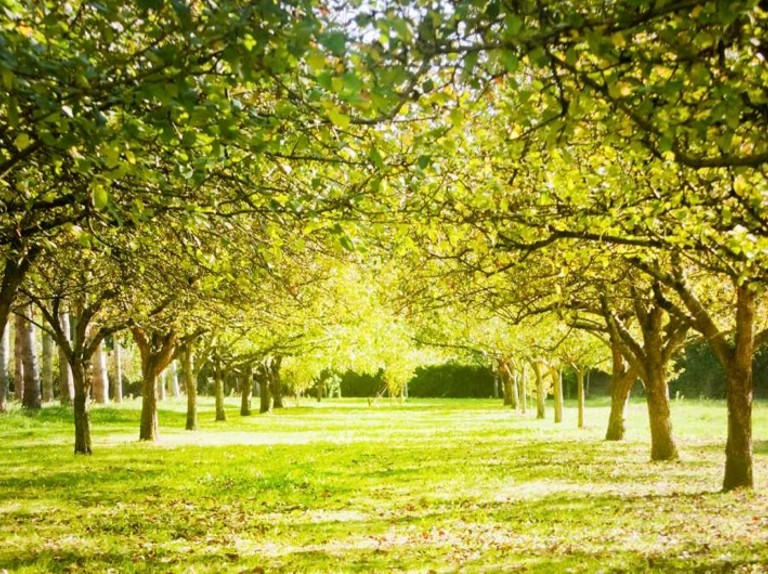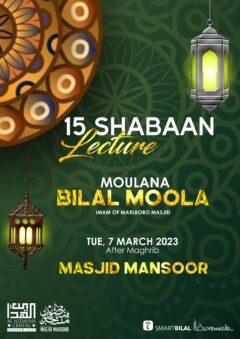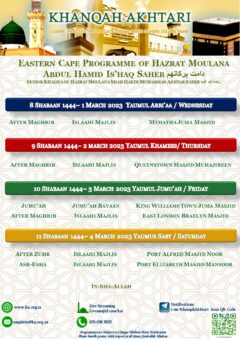One of the inbuilt human traits is to seek ease, comfort and happiness in all things. This extends to life, death, the grave and the Hereafter. In this pursuit of happiness, one can at times be misled into equating short lived pleasure with true, lasting happiness. Pleasure can be of the permissible or impermissible variety.
Robert Lustig has listed some differences between happiness and pleasure:
- Pleasure is short lived, happiness is long lived
The joy of sin lasts momentarily and is followed by everlasting regret, and sorrow over what one has done. Ibn al Jawzi rahimahullah states that forbidden fruit is sweet and tempting. If man is told not to do something, his soul wants to do it.
Ibn al Jawzi rahimahullah lists two reasons for this:
a. The soul does not like to be restricted. We become easily frustrated at the loss of sight or health and feel claustrophobic in narrow spaces. Being limited within the body is the maximum level of tolerance for the soul.
b. Rebellion is built into the nature of the human soul. We find it difficult to be under any authority.
Pleasure of both the permissible and impermissible form is short lived. On the other hand, the happiness attained through obedience to the Allah Ta’ala is long lived.
- Pleasure can be achieved through substances. Happiness cannot
When a person looks for pleasure, he utilizes things to attain it. The key is the proportion of pleasure relative to happiness. The goal is a balance of both. One can eat delicious food to attain permissible pleasure, or go on a holiday. The means to attaining that pleasure needs to be kept within reasonable limits. People pay extraordinary amounts of money to be surrounded by the tools of pleasure, whether it is the latest entertainment system, or exclusive restaurant, palatial homes or paintings. The most expensive painting was sold for $450 million!
- Extremes of pleasure lead to addiction. There is no such thing as being addicted to too much happiness.
People who look for pleasure in impermissible things end up chasing that first spike of pleasure. The next time it needs to be more intense to get a similar feeling. Before long a person is in the trap of an addiction that leads to unnatural behavior in trying to satiate the craving. How many a multi-millionaire, in the pursuit of illicit lust, has resorted to trafficking underage girls and assorted filth.
“Satan threatens you with poverty and makes you commit indecent, immoral acts.” (Quran 2:268)
The hand of the devil is evident in the mass scale abuse of vulnerable women and children by monsters in the pursuit of their next craving of lust.
We eat, shop, marry, go on holiday and throw parties in the pursuit of pleasure and happiness. The reality is very different. Ibn al Qayyim rahimahullah states that in the heart are disorders and cravings that can’t be remedied except by turning to Allah Ta’ala. The desolate, empty feeling can’t be removed except by being alone with Allah Ta’ala in worship; sadness can’t be truly removed except with the happiness of knowing Allah Ta’ala. This void and emptiness within one can’t be filled except with the love of Allah Ta’ala.
This might seem a complex matter beyond our reach, but Imam Ghazali rahimahullah tells us otherwise: We are eager and ready to discuss intricate matters that have no real relevance or direct impact on our lives but we are reluctant to learn about the actual, critical priorities of our existence. The question is that why wouldn’t we want to make the effort to learn about love of Allah Ta’ala? What is really holding us back?
Imam Ghazali rahimahullah, in the Alchemy of Happiness, says that happiness is linked to knowing and having knowledge of Allah Ta’ala. All human faculties delight in doing what they were created for – lust in fulfilling its passion, anger in taking revenge and acts of vengeance, ears in hearing harmonious sounds and the eyes in seeing beautiful things.
The highest function of the soul of man is to realise the truth and it takes special delight in this. This is true for even trivial matters like learning to play a game well. Gamers delight in being accomplished in their latest acquisitions. Sportsmen revel in playing their game with skill.
Imam Ghazali rahimahullah goes on to say that the higher the subject matter we learn, the greater the delight. If we have a contact with a government minister, we are happy. Upgrade that to being the confidant of the President who shares state secrets with you, and you increase in happiness. Nothing is higher than Allah Ta’ala; so how great then must the delight which springs from having knowledge of Him be? Brushing this off simply because we have not tried it is foolhardy.
We need to work on attaining this ultimate happiness, but since when has this ever been a stumbling block for us? Start with the basic steps of reciting the Noble Quran, reading Salaah, and then move on to attaining the knowledge of Allah Ta’ala through attending the classes of the Ulama or listening to their talks and reading authentic literature. Look for and engage with the pious, knowledgeable people in the community who have walked down this road.
If you need any motivation, then think that at death all senses come to an end, except the soul which carries on to the day of Judgement when it is reunited with the body. The soul retains the knowledge of Allah Ta’ala it has attained through all phases of existence and in fact increases in this.
Gaining pleasure through acts of worship does not require any upgrade or change. The same Noble Quran is recited daily, the same actions of Salaah carried out throughout our life, the same Ka’bah visited annually yet they still inspire joy. They never become stale like impermissible acts which require constant change and upgrade.
Acts of worship are enjoyed not just once but multiple times:
a) when doing them,
b) when recalling doing them, and
c) when we get their reward.
Make the choice to work for true happiness.











COMMENTS